Infantry Company Command (2016)
Topic: Leadership

Infantry Company Command
The following was written by an officer leaving company command in a Canadian regiment in 2016. Shared with the author's permission.
What follows are a few notes of what I felt were the salient points on rifle company command. These were things that I learned on the job—I may have applied them well throughout, or poorly at first and better and better as time went on. Some of these are things I grappled with right to the end, and may still not have the answer. Here they are:
Command
1. The Level of the Fight. A rifle company commander is a tactical leader, first and foremost. You are concerned with everything in a roughly 2km bubble. You take up about half of the bubble physically, (a good rule of thumb is that in open ground, a dismounted company fits in a grid square) and own the rest of it with the effects of your weapons. It was important to learn how to move in this bubble and I spent many days on a whiteboard with my leaders discussing how we would move as a company. It was important to visualize how to move a company to find, fix and strike an enemy platoon/company, either moving or dug in, as this is the fundamental task. Since a company commander operates at this level of the fight, you need to know it inside and out. A company commander should know crew served weapons thoroughly—refreshing oneself on the ranges and beaten zones of my machine guns and other weapons was essential. It is also valuable to go out and do drills with your soldiers on these weapons (I didn't do it as much as I should have, though).
2. Aggregate/Disperse. As a platoon commander, you can't really disperse too much—everything is generally within line of sight except for patrols. As a company commander, it was critical to understand when to come together and when to disperse. This is related to point (1) above, but requires some thinking. Sending out scouting parties forward under a platoon commander, especially in close terrain, was an SOP to develop. So was massing the right elements in a company firebase. How much of your force to you bring together for an assault (evidence suggests not much) while how much to preserve to push past to infiltrate/disrupt is a balance to consider. This takes practice—if all you want to do as a company commander is line up with 2 up, 1 back, you are going to fail.
3. Massing Fires. This is where the company commander earns his pay. He has (or should have) and OP Det with a FOO. He should control the employment of crew-served weapons (for the most part). We teach this to platoon commanders on phase training, but I think it is a bit unrealistic (although I recognize its training value) as I would never, as a company commander, have a platoon commander try to sit there and figure out when he needed arty shut off as that was my job as I launched him on to an objective. As well, in discussing fire plans and fire bases, I came to the realization that, while platoon commanders are busy with "gutful men" leading assaults, the company commander should be looking to move fire support elements—its a pipedream to think that supporting fires are from a single firebase on a hill that can support the entire fight. First off, if that hill exists, the enemy has a DF on it; second of all, the enemy has depth, and as the company commander, you need to think how to mass fires from different areas at different points of the battle.
4. Know Your Commanders 2 Levels Down. As a platoon commander, I could know everyone in the platoon. I couldn't really do this as a company commander, and it took time to know all the faces in what was, for a time, a 100+ man rifle company (numbers ebbed and flowed). I read somewhere that a commander at any level should know his commanders two levels down; I think this is a good universal principle to strive for. So, as a company commander, I took the time to know my section commanders. I interviewed each of them, knew their family situations, their career histories and aspirations and got their thoughts on what they felt their section, platoon and company needed to work on. I found this was valuable.
Training
5. Routine Training. Company command is where the rubber meets the road for the training of soldiers. It taught me to look at training requirements as a "mileage book", like that book you get in a new car that tells you what maintenance is required at what intervals. Good organizations do routine things routinely (that's from a former CO), and I like to think I developed a good understanding of what "routinely" meant for different essential tasks. I used the analogy of athletes. A good baseball player isn't good because he did a course on batting, he's good because he practices batting every day. Even the great hockey players practice every day (it's part of what makes them great), and will shoot pucks at the net for hours. At first, when I designed training, I just kind of threw things up that sounded interesting ("well, we haven't done this in a while"). I learned that I needed to be more systematic than this, and that metrics should be set for performance—it's great if we go to the range or conduct medical refreshers, but what was the standard to achieve and did we achieve it? This "mileage book" concept is not something I had nailed down, but it would be very useful for a battalion to issue and guide company commanders in the training of their soldiers.
6. Quarterly Training Plans. Based on the "mileage book", quarterly training plans were built for the company and posted. Although they were living documents, the company found them useful. Soldiers could plan their lives, and tasks were assigned to platoons and other leaders for specific training events that I tasked them to lead. A battalion lives year to year on its Operating Plan, while a company lives in three month blocks with training plans that it builds off the Operating Plan. The quarterly training plans also helped Bn HQ, as they saw what training we were intending to conduct and could start getting resources lined up—I found I often got what I wanted because I planned and requested stuff early on.
7. Train to Failure. Train to failure is something I got from a previous Bde Comd. It's great to plan an exercise where everyone shoots up the targets, wins the battle and has beers back in the biv, but you learn more from failure. Have a defence overrun, or an attack stalled or just put enough friction into events that subordinates learn the hard way. One of the best training events I observed is where commanders failed during force-on-force training due to situating the estimate against a live enemy, who planned a simple delaying action. Those commanders learned more on that AAR than on anything else, because everything went pear shaped.
8. Do it Twice or Don't Do it at All (and try to do it until you can't get it wrong). I always thought opportunities were missed when a range was conducted, then the soldiers sat in the AAR and heard what everyone could have done better only to then go back to the hide to get ready for something else. As I started to run more and more ranges, I endevoured to build the time around doing it twice whenever possible (sometimes, friction intervened, but you can't win them all). A successful section range had every section getting six iterations, and the progression showed. Yeah, the soldiers "know" what the scenario is after the first go around, but there is genuine value in watching them chalk talk the application of the lessons observed and turning them in to lessons learned. Same for force-on-force training. Attack a positions, figure out how to do it better and let them attack the same position again. This goes back to batting practice and a great saying a former CO of mine—don't do things until you get them right, do them until you can't get them wrong. When designing training, I'd argue that doing a short range three times is far better in terms of learning than doing one range that lasts six hours.
9. NCOs and Whitespace. This was something to stay on top of throughout. I told my NCOs that they should never waste a chance to train their troops and doing an hour refresh on a radio or a compass is better than just going home at 1500 because there is nothing to do. All NCOs were tasked to have a lesson plan in their pocket and to be prepared to grab soldiers to lead routine training (the CSM followed up and managed this well). Soldiers sitting on the stairs is unacceptable, and this is in the hands of the Master Corporals and Sergeants. Yet, it was frustrating to see it happen from time to time. Part of it is that some NCOs were unsure of how/when to take the lead on designing training. They got better as Sergeants were tasked to take the lead in more training ("Sergeants X, Y and Z, you will lead the next urban ops training session. Tell me what you need"). Part of it is just that there are some weak NCOs. Some were great, and carried a lot of the weight, but some were not. I don't think we, as an Army, have as tight of a venturi on who gets a Leaf and I think it behooves the company commander to consider how to engage his NCOs, especially his weaker ones, and to make them get off their butts, get in front of their soldiers and train them. The CSM will be able to help drive this, but he is usually pretty busy as well, so it will take a team effort. It behooves you to take a personal interest in your NCOs, how good they are, and how they get better.
Standards
10. Inspect, Inspect, Inspect. This is the only way you prevent those stupid foul ups from happening—a funny line I saw was that soldiers don't do what you expect, they do what you inspect. Inspect became an ugly word in our Army for some reason—I think it may be a bit of an Afghan War thing? There is too much "you good to go?" "yeah, we're good to go!" in the Army. I've seen weapons not function, batteries die, equipment missing and soldiers deploying without basic items because leaders didn't inspect. It was useful to schedule monthly inspections on the quarterly training calendar. It was also useful to announce what was being inspected and what the standard was so that soldiers could focus on preparing properly (I think "surprise inspections" may not be very useful). Vehicles were inspected monthly—it's amazing how much garbage piles up in vehicles but, after a few inspections, they were swept out and cleaned regularly. The company would be formed up in fighting order and every soldier's weapon and kit inspected by he company commander and CSM while the platoon commander and 2IC were taking notes (they'd be inspected first). Yeah, platoon and section leadership could do this (and I expected them to conduct their own inspections), but the boss has to be seen enforcing the standard. It is an obvious statement that the company commander also has to set and meet that standard with his gear as well, and it was important not to let up on the leadership either. Early on, after announcing an inspection of the weapons vault, all the troops worked hard so I knew their stuff would be clean. So we inspected the weapons of every Sergeant, Warrant Officer and Officer, and many of them weren't up to standard. After that, when weapons maintenance was conducted, leaders were vigilantly cleaning their stuff too. Inspections apply to the field as well, in the form of Pre-Combat Checks (PCCs). We laugh at that old "Section Battle Drill No 1—Form Up for Battle", but it is right (minus all the goofy yelling). I never got a standardized PCC card hammered into my leaders, which was my own failure. It should be a battalion SOP, and NCOs should live by it in the field. To me, inspections and the willingness of leaders at each level to embrace them are what separate real good infantry outfits from mediocre ones.
11. PT—Lead by Example, From the Start. Our military has a fitness problem, straight up. I was lucky to be in a battalion with a fitness culture. However, some soldiers aren't very fit, and only leadership will move this yardstick forward. Company PT is good, and I'd try to lead it every Friday if possible (generally a forced march in fighting order or marching order) but it wasn't always possible. I'm a firm believer that PT is best executed at the platoon level as the group size is about right, but the Platoon Commanders need some support, especially if they have sub-par Platoon 2ICs or NCOs not pulling their weight—some times, young officers have trouble imposing their will on their leadership. I should have hopped in with Platoon PT more often, as it's actually pretty fun, as you can just be a troop and not have to lead anything and it's a great way to get a view of your soldiers. There seemed to be, in every company, a gaggle of soldiers that seemed to use their rank or their "time in" to scam out of PT. I'd see a young platoon commander take off with his soldiers and a few of his NCOs. The CSM and I would then walk the lines (before we went and did our PT) and sure enough, there are these "middle management" type guys, hanging around in the office. It was a problem in every company. A solution which seemed to help was to make PT a company activity, at least to start. Hold a PT parade in the morning and lead the entire company in a quick warm up (a real warm up, not just a silly calf stretch). The platoon commanders would then break off with their platoons and the CSM and I would get to see who wasn't going. Once we put the eye on the shirkers, things started to tighten up. PT is probably the most important thing we do in the day, as it prepares our bodies and minds for the physical and mental challenges of campaigning, so the company commander needs to take the lead in ensuring that time is used wisely and by all.
12. Discipline in Public. Military justice is supposed to be public—thankfully I only conducted a couple of summary trials, but they were set up in the company lines and the entire company was there to observe. After the trial, I'd have a quick PD session with the company and talk about the military justice system, the nature of the offense, and why it is important to handle things the way we do. It was educational for the troops, and I felt it was a worthwhile way of doing things.
13. Commander's Notebooks. A Platoon Commander will be better if he has a good commander's notebook. It means he's tracking his soldiers, their families, their careers, his platoon's equipment and his training plan. Provide guidance on what these needed to contain and inspect their notebooks. I think they were better commander's for it. My notebook was a little less focused on personnel (I kept files on section commanders and above) but I still had a series of documents on equipment, ORBAT, qualifications that allowed me to make timely decisions regarding the company. Very rarely, in meetings with the CO, did I have to say "I'll have to get back to you sir" because my notebook armed me with the right info.
14. Make the Hard Decisions. This one is kind of a cliche, but it is important to be said and I never really started to feel it until assuming company command. The right decision is, in many cases, not the easy one, and at times it won't be the popular one, but you have to make it. Platoon commanders are young guys and gals, trying to figure stuff out and trying to be popular a lot of the times so you need to be vigilant with them. Make the decision to make training harder, to push it out during PT, to stay the extra time to get things done right, and to use the downtime to do something productive. Make the difficult decision to be hard on guys, even if they are "good guys", that aren't meeting the standard. I was too nice sometimes, and I regret this. There is a balance, and figuring out how to be hard without being an a**hole is an important skill, as it will separate those who are respected and those who are disliked—the weak, soft leaders are the ones who are despised. There is also balance on determining when "letting off the gas" is useful—you'll just break guys if you go 110% all the time. But never accept "this is good enough for now and we'll get it right next time" if the standard is not achieved. There were times, after making the hard decision, that I think that the soldiers hated me that day, but it was the right thing to do and I learned not to care about being liked (I found solace with the CSM, who was the ultimate sounding board). Company commanders have a lot of manoeuvre space and a lot of opportunities to take the easy road, but they will only fail their subordinates during the most critical time, the unforgiving minute, if they do that.
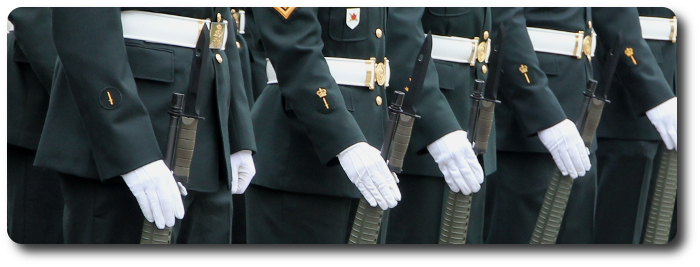

Posted by regimentalrogue
at 12:01 AM EDT
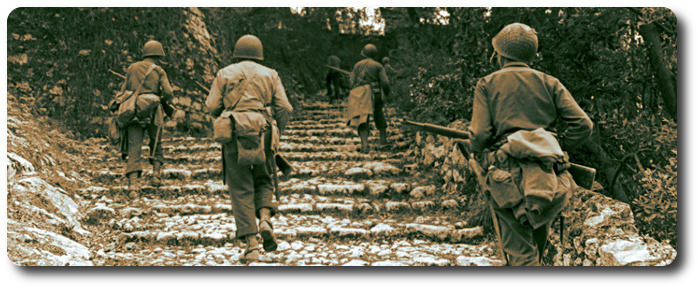



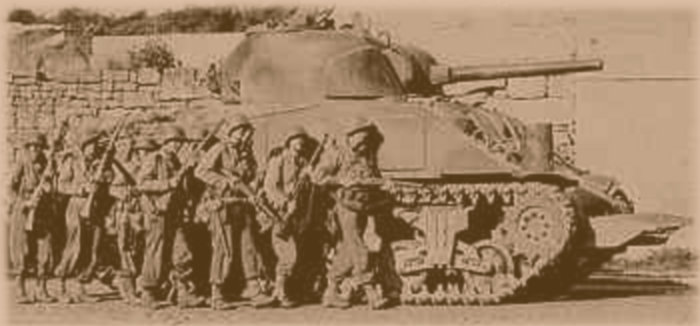
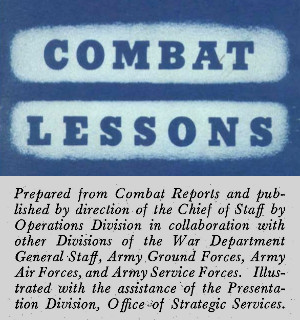 Combat Lessons, Number 2, September 1946
Combat Lessons, Number 2, September 1946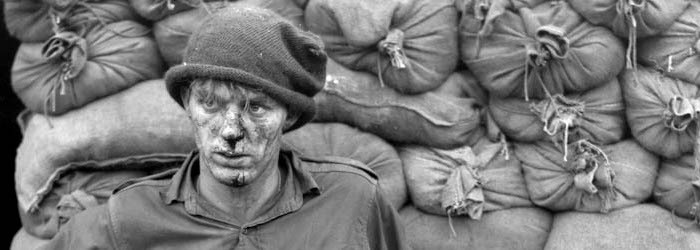



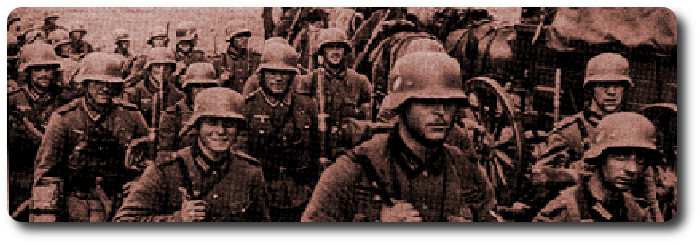
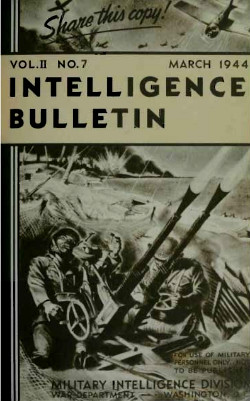 Several months ago the commanding officer of the Third Panzer Grenadier Division [General der Panzertruppen Fritz-Hubert Gräse] assembled extracts from two German Army manuals, one dealing with military leadership and the other pertaining to the training of officers, and ordered that they be distributed as a single booklet to the officers of his command. In a foreword the commanding officer said, "This booklet should always accompany my officers. It should become an indispensable possession. I expect them to take it out again and again, and study it until its contents have become a guide for their lives and actions. It should force them to test themselves, over and over, to see whether they are adequately prepared to meet the high—and often merciless—demands which will be made upon them.
Several months ago the commanding officer of the Third Panzer Grenadier Division [General der Panzertruppen Fritz-Hubert Gräse] assembled extracts from two German Army manuals, one dealing with military leadership and the other pertaining to the training of officers, and ordered that they be distributed as a single booklet to the officers of his command. In a foreword the commanding officer said, "This booklet should always accompany my officers. It should become an indispensable possession. I expect them to take it out again and again, and study it until its contents have become a guide for their lives and actions. It should force them to test themselves, over and over, to see whether they are adequately prepared to meet the high—and often merciless—demands which will be made upon them.
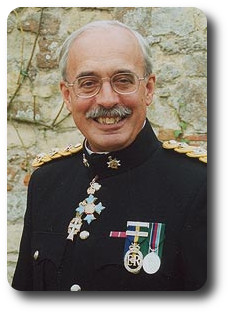
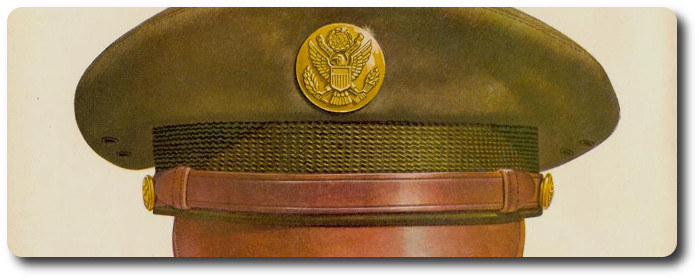
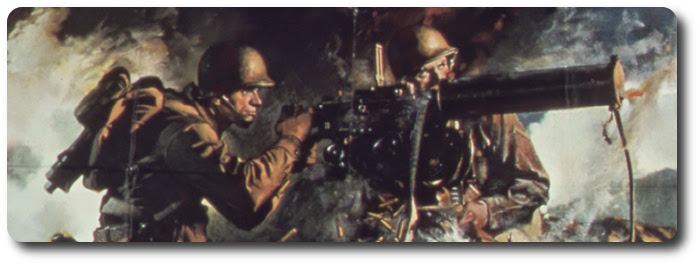
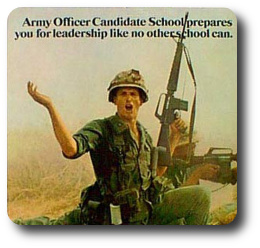

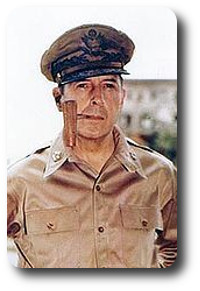
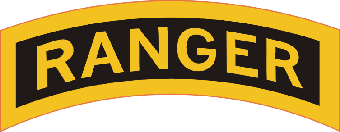
 Norman Dixon's book looks at incompetence in military leaders throughout history and considers whether, rather than being random occurrences, they are, in fact, a result of the military system. In particular he considers whether people with certain psychological characteristics are drawn to a military career, and whether the military insulates and exacerbates these characteristics in them.
Norman Dixon's book looks at incompetence in military leaders throughout history and considers whether, rather than being random occurrences, they are, in fact, a result of the military system. In particular he considers whether people with certain psychological characteristics are drawn to a military career, and whether the military insulates and exacerbates these characteristics in them.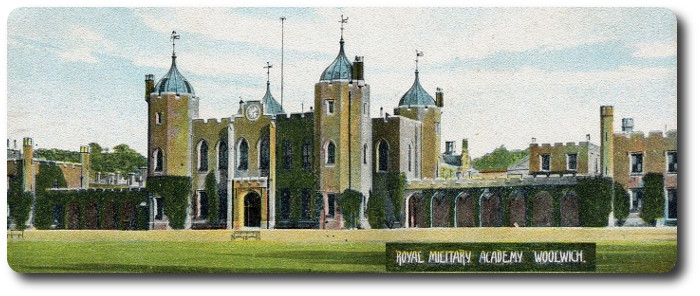
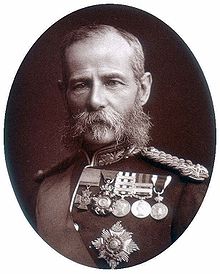 Never did a Commander-in-Chief offer more valuable advice than did
Never did a Commander-in-Chief offer more valuable advice than did 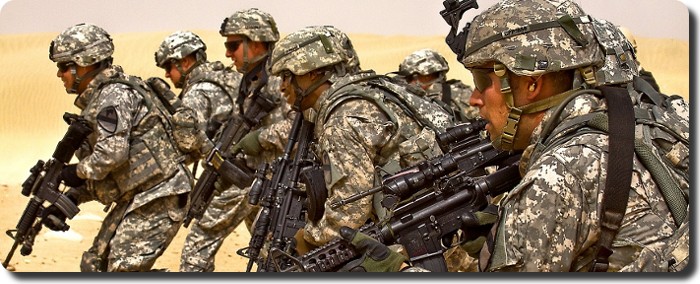
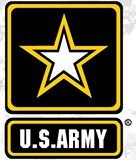 A compilation of survey and interview data led to the formulation of a list of critical behaviors for Division Commanders (and other leaders) that would best assure creation of "A Command climate that supports operational excellence ["Operating"] and also motivates competent people to continue their military service ["Improving".] They are taken from the Leader Behavior Preference (LBP) items and provide a convenient description of critical behaviors as seen by study participants. They are described as "The BIG 12":
A compilation of survey and interview data led to the formulation of a list of critical behaviors for Division Commanders (and other leaders) that would best assure creation of "A Command climate that supports operational excellence ["Operating"] and also motivates competent people to continue their military service ["Improving".] They are taken from the Leader Behavior Preference (LBP) items and provide a convenient description of critical behaviors as seen by study participants. They are described as "The BIG 12":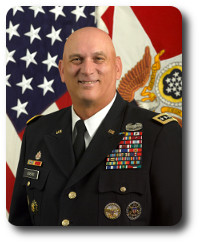 In early 2012,
In early 2012, 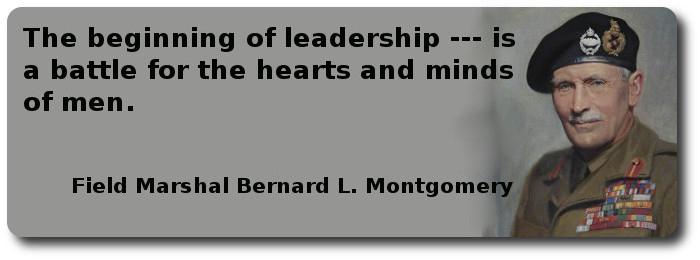
 An army today is a self-contained community; it contains everything its members need for war, from bullets to blood banks. I will always remember Churchill's anger when he heard of several dentist's chairs being landed over the beaches in Normandy! But we have learnt since the 1914-18 war that by caring for a man's teeth, we keep him in the battle. The good general must not only win his battles; he must win them with a minimum of casualties and loss of life. I learnt during the 1939-45 war that four things contributed to the saving of life:
An army today is a self-contained community; it contains everything its members need for war, from bullets to blood banks. I will always remember Churchill's anger when he heard of several dentist's chairs being landed over the beaches in Normandy! But we have learnt since the 1914-18 war that by caring for a man's teeth, we keep him in the battle. The good general must not only win his battles; he must win them with a minimum of casualties and loss of life. I learnt during the 1939-45 war that four things contributed to the saving of life: